Which Is More Difficult to Play and Learn, Piano Or Guitar?: Music is the study of integrating sounds in a rhythmic, melodic, and harmonic order to create a pleasing sequence of sounds or combinations of sounds. It is a method of arranging sounds in time using qualities such as melody, harmony, rhythm, and timbre. It is one of the universal cultural elements of all human communities. You could think we don’t have any musical instruments or access to music. One of the finest ways to unwind and relieve yourself after a hard day is by performing or learning to play an instrument.
In addition to relieving stress, it offers a slew of other advantages, like making you feel more confident, smarter, boosting your memory, and enriching your social life. In the various instrument marketplaces, however, choosing an instrument to play or learn has never been easy. This article is basically going to compare and contrast the complexities involved in learning piano and the guitar, the two most popular instruments in the world. I hope you will make the correct conclusion after reading the entire text.
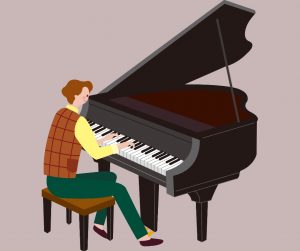
Recommended: How long does it take to learn the Piano (Explained)
Understanding Piano Fundamentals and Techniques
For novices, there are a number of advantages to learning the piano from the beginning.
To begin with, when learning to play the piano, you have access to all of the notes that are already written out for you, and all you have to do is press the appropriate key. But that doesn’t mean it’s easy.
There are nuances to learn because your pressure and the combination of other keystrokes have a significant impact on the sound.
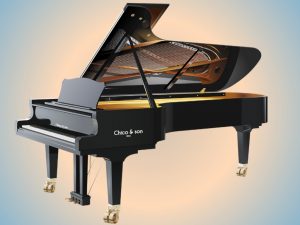
When it comes to learning, various instruments require different approaches.
There are many different ways to learn, ranging from self-teaching to hiring an instructor.
To play the piano, for example, most people must learn about musical notation.
Both hands will have to acquire identical motions and dexterities when playing the piano, and they will undoubtedly have equal responsibility in most arrangements and songs.
Learning the notes on the piano, on the other hand, will transfer to other instruments and make learning them simpler.
On a piano, there are more individual keys to memorize because many pianos have 88 keys in total. These keys have repeating patterns that are simple to map out after you’ve mastered them, but getting comfortable with the placement and arrangement of the keys is the first step.
Your posture and hand positions will likely feel more natural than the hand positions required for guitar chords as compared to setting yourself up with a guitar.
Also see: Hardest musical Instruments to learn and play
Understanding the Guitar Fundamentals and Techniques
The fundamentals of the guitar might appear to be a little more challenging at first. Unlike the piano, the notes are not as simply accessible as touching a key but must be made individually.
Knowing the various finger and hand positions, on the other hand, helps to learn the guitar a little simpler without relying on musical notes. Instead, many individuals who are learning the instrument utilize chords.
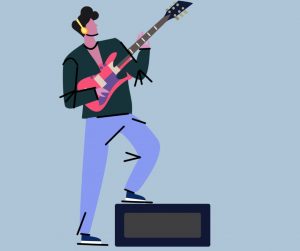
Transitioning to other instruments, on the other hand, maybe a little more challenging. The way a guitar is designed and how you play it will feel strange at first and take a long time to get used to. But, much like any other instrument, after a few classes or more time spent playing the guitar, it should start to feel more natural.
As you contort to the fretboard to play in different keys, your finger postures will become unnatural. Your fingertips will naturally acquire calluses as they become accustomed to the guitar.
Recommended: Easiest Musical Instruments To Play and Learn
Contrasting And Comparing The Complexities Of Playing The Piano And The Guitar
When playing the piano, finger and hand freedom are important considerations. This implies that one half of your body is trained to play specific keys and notes, while the other half is taught something else. This, too, varies according to the song or arrangement. This is true for the guitar as well, although the motions for playing the guitar rely more heavily on the capacity of one hand to alter chords and positions.
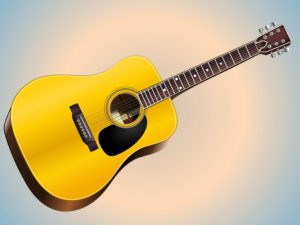
As you progress through the levels of learning your instrument, you’ll see that coordination is crucial for both the piano and the guitar. This is important because you must be able to play in unison or complementary to one another, which may entail playing two lines of notes that sound nothing similar but fit together wonderfully when played simultaneously. With the piano, this is effectively reduced down to the fact that you have two hands, each of which is doing something completely different.
Under normal conditions, the pianist can only play the instrument using the keys on the keyboard. This limits the pianist’s range of expression in ways that the guitarist does not, or at the very least opens up expressive options for the guitarist that is not immediately available to the pianist. Even though a skilled pianist can get the most expressive and emotive tone from the keyboard, a guitarist may add a more vocal degree of expression to their performance. Many electric guitar solos in all prominent genres have employed this technique to great success.
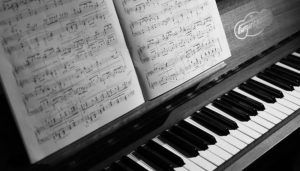
Recommended: Most difficult courses to study in the university
The keyword to remember as a guitarist, especially if you’re playing an acoustic rather than an electric instrument, sustain.’ On a guitar, the natural sustain and decay of every note are far shorter than on a piano. Remember that the piano has a sustain pedal designed specifically for this purpose, but the guitar must rely on its inherent acoustic features as well as the environment in which it is performed. This is a problem for guitarists who want to play a believable legato or fluid phrase or move from one chord to another without a noticeable delay that disrupts the music’s flow. The pianist, on the other hand, can use the sostenuto pedal to help them achieve the perfect legato phrase. This can lead to some awful overpedaling in an attempt to compensate for technique flaws.
It’s also worth noting that playing a melody and an accompaniment as a beginner guitarist might be difficult. The guitarist must have enough dexterity to bring out the melody by gently intensifying the string’s stroke while retaining a clear accompanying figure on the other strings. For the pianist, melody and accompaniment are frequently separated between the left and right hands in the early stages of learning; the right hand with the melody, the left hand with the accompaniment. The alternatives can become increasingly sophisticated as the pianist improves, with tunes in both hands or even flowing from one hand to the other. The same is true for guitar, as more complicated pieces necessitate the ability to play multiple melodies as well as an accompaniment.
Both instruments have the capacity to produce a wide variety of loudness, which performers may employ to express themselves in their performances. Because classical and acoustic guitars are not particularly loud instruments, ambient amplification is frequently utilized to enhance the sound of a solo or ensemble of guitarists. The concert grand piano, on the other hand, can be heard over a full symphony orchestra and has a wider variety of dramatic choices.
Also see: Advantages and Disadvantages of being a teacher
Final thought
Learning to play a high-level instrument, such as the guitar or the piano, is a huge undertaking. They are both unique and beautiful instruments capable of a wide range of expression, each with a rich cultural background and a vast repertoire of works to delve into. Although both the piano and the guitar have been investigated, the debate remains as to which is more difficult to master: the piano or the guitar.
At the end of the day, learning to play most instruments takes a lot of time and effort, especially if you want to get to an intermediate level. Declaring that one instrument is more difficult to learn than another is prejudiced and minimizes the difficulties of mastering the other. Learning one instrument can aid in the comprehension of other instruments. If you’re wondering which instrument is more difficult to learn, there are no specific data to support either side, and it will most likely vary from person to person. Both instruments are ideal for beginners, so don’t let the difficulties deter you from picking one up.

Edeh Samuel Chukwuemeka, ACMC, is a lawyer and a certified mediator/conciliator in Nigeria. He is also a developer with knowledge in various programming languages. Samuel is determined to leverage his skills in technology, SEO, and legal practice to revolutionize the legal profession worldwide by creating web and mobile applications that simplify legal research. Sam is also passionate about educating and providing valuable information to people.